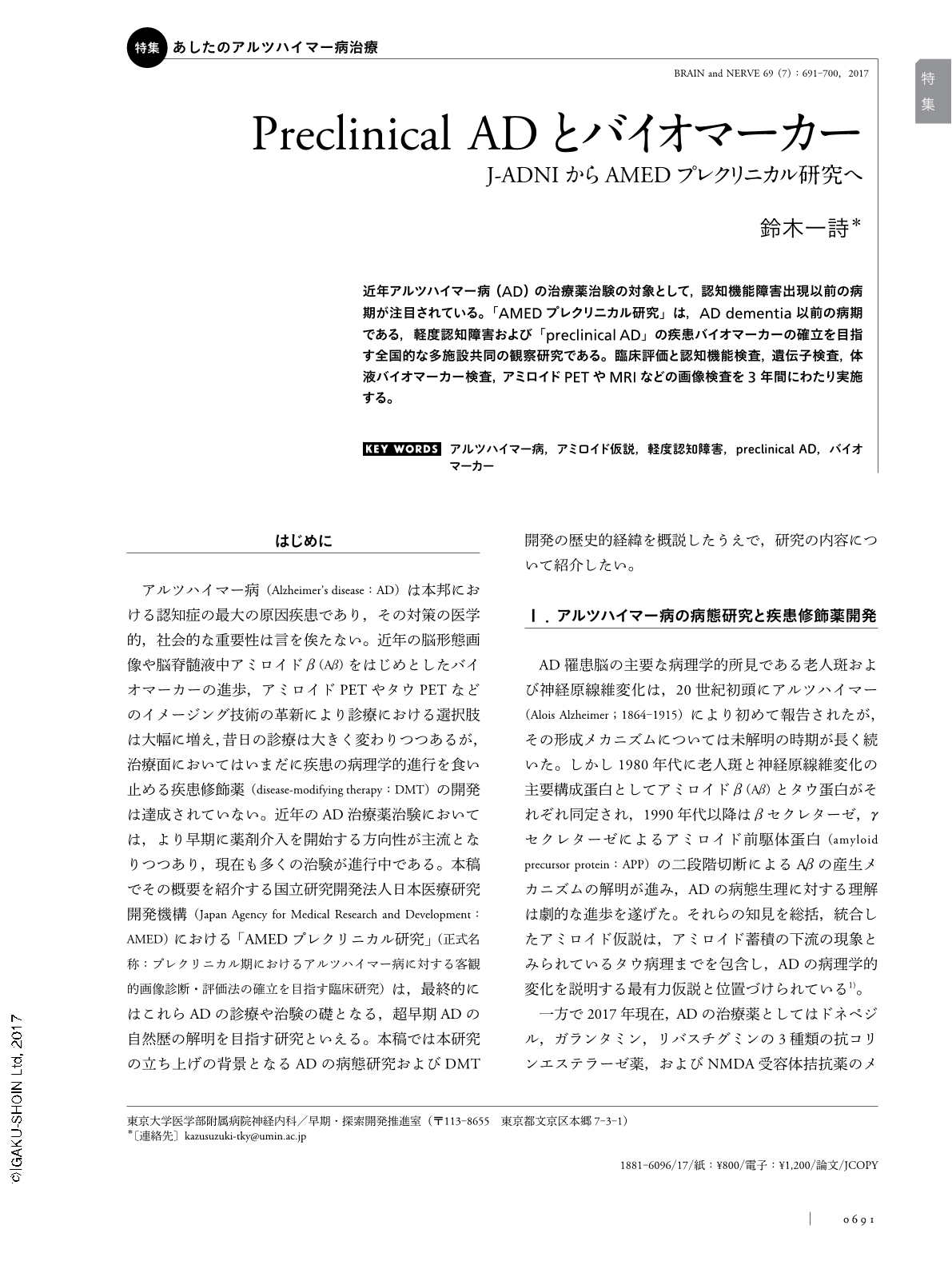Japanese
English
- 有料閲覧
- Abstract 文献概要
- 1ページ目 Look Inside
- 参考文献 Reference
近年アルツハイマー病(AD)の治療薬治験の対象として,認知機能障害出現以前の病期が注目されている。「AMEDプレクリニカル研究」は,AD dementia以前の病期である,軽度認知障害および「preclinical AD」の疾患バイオマーカーの確立を目指す全国的な多施設共同の観察研究である。臨床評価と認知機能検査,遺伝子検査,体液バイオマーカー検査,アミロイドPETやMRIなどの画像検査を3年間にわたり実施する。
Abstract
Alzheimer's disease (AD) is most prevalent cause of dementia and no cure has been discovered. Although the framework of AD clinical trials is being established utilizing results of large-scale observational studies such as the AD Neuroimaging Initiative (ADNI) and the Japanese-ADNI (J-ADNI), the development of disease-modifying therapy for Alzheimer's disease (AD) has not yet been achieved. Preclinical AD was recently defined as a new disease stage in which AD is asymptomatic but biomarkers suggest the presence of amyloid pathology. Preclinical AD has been focused as promising therapeutic time window and establishment of reliable biomarkers for preclinical AD is an urgent task. The Japanese Agency for Medical Research and Development (AMED) preclinical study is a nationwide multicenter observational study carried out by public research funding from AMED as a successor to the J-ADNI study. The goal of this study is to establish a biomarker that can quantitatively evaluate the disease progression of preclinical AD and mild cognitive impairment (MCI) or predict the progression to MCI and dementia in the future. To achieve this goal, the following assessments will be conducted over time for three years: clinical evaluations; cognitive tests; genetic testing; body fluid biomarker tests; and imaging biomarker studies such as MRI, FDG-PET, and amyloid PET. The obtained data will eventually be released to the public database.

Copyright © 2017, Igaku-Shoin Ltd. All rights reserved.


